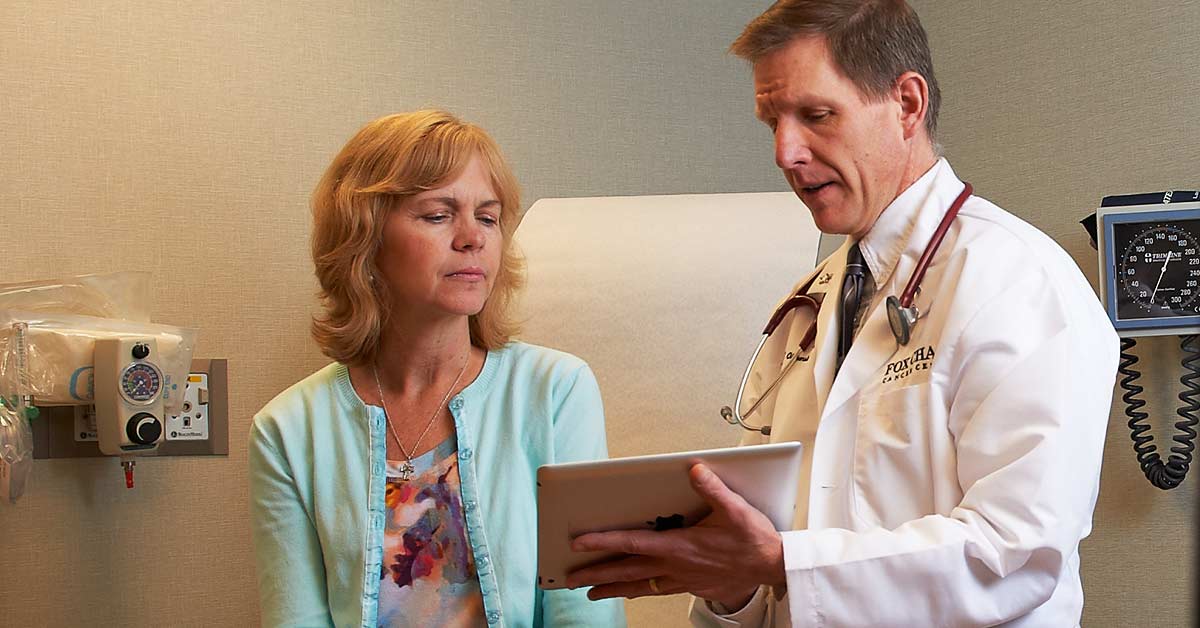
Managing Other Health Problems When You Have Cancer
-
A cancer diagnosis can often take up a lot of the time and energy you have for managing your health. However, if you have other chronic medical conditions (often called coexisting conditions) in addition to cancer, it’s important to stay on top of them and discuss them with your oncologist.
Many chronic health issues can have an impact on cancer treatment, and certain cancer treatments have the potential to make existing conditions worse. Keeping up with your total health needs and having a conversation with your oncologist can ensure that the care you receive for cancer is effective, and it can also help you stay healthier after your treatment ends.
“We are now seeing a number of patients who enjoy long-term survival and no further oncologic disease,” said Anthony J. Olszanski, MD, RPh, a medical oncologist at Fox Chase Cancer Center. “In those situations, if the cancer is no longer threatening the patient’s life or livelihood, keeping track of their other healthcare problems is important.”
How Cancer Can Impact Coexisting Conditions
It’s not unusual for cancer patients (especially those older than 65) to have other chronic health problems, including: high blood pressure, diabetes, arthritis, heart disease, lung disease, or kidney disease.
Some cancer treatments or medications can adversely affect coexisting conditions. For instance, some treatments or drugs can worsen high blood pressure or cholesterol, chemotherapy can increase lung inflammation in people with lung disease, and for those with diabetes, chemo side effects (like nausea or vomiting) might make it harder to manage blood sugar.
It’s also possible for a coexisting condition to affect how your cancer is treated. One example is diabetes, which can cause nerve problems when not properly managed.
“If we’re treating a patient for colon cancer, one of the drugs available can cause nerve damage,” Olszanski said. “If the patient also has pre-existing nerve damage from diabetes, they may not be able to receive that medication.”
Communicating With Your Oncologist
Communication is key for balancing your cancer care with other health issues. When you first meet with your oncologist, be sure to bring along your personal medical records. They will give your doctor the information they need about any coexisting conditions you have and any medications you’re taking to manage them.
Be sure to also bring up any past health issues you’ve experienced as well as any current ones, even if they don’t seem relevant to your cancer care. For instance, the heart attack you had a decade ago or the root canal you have scheduled for next week might not seem relevant to your cancer treatment but, according to Olszanski, these things are important to your oncologist.
If covering everything feels overwhelming, seek the help of a family member or trusted friend. Before your appointment, you can work together to prepare a list of any co-existing or past health issues you need to discuss. They can also take notes during your appointment and chime in with any questions that you might forget to ask.
It’s also crucial that you discuss all the medications prescribed for your co-existing conditions with your doctor, and once your cancer treatment begins, be sure to talk to your cancer care team if you are experiencing side effects that are making it difficult to manage your other health problems.
Managing Your Conditions
To best manage your coexisting conditions while undergoing cancer treatment, be sure to stay up to date on appointments with other specialists and keep taking your prescribed medications regularly. As things become hectic, it may be helpful to use a calendar or alarms on your phone to keep track of things or enlist family members and friends to help.
As you meet with other physicians (or if your medication changes), be sure to keep your oncologist in the loop, as changes in your health and condition management can affect your cancer treatment.
